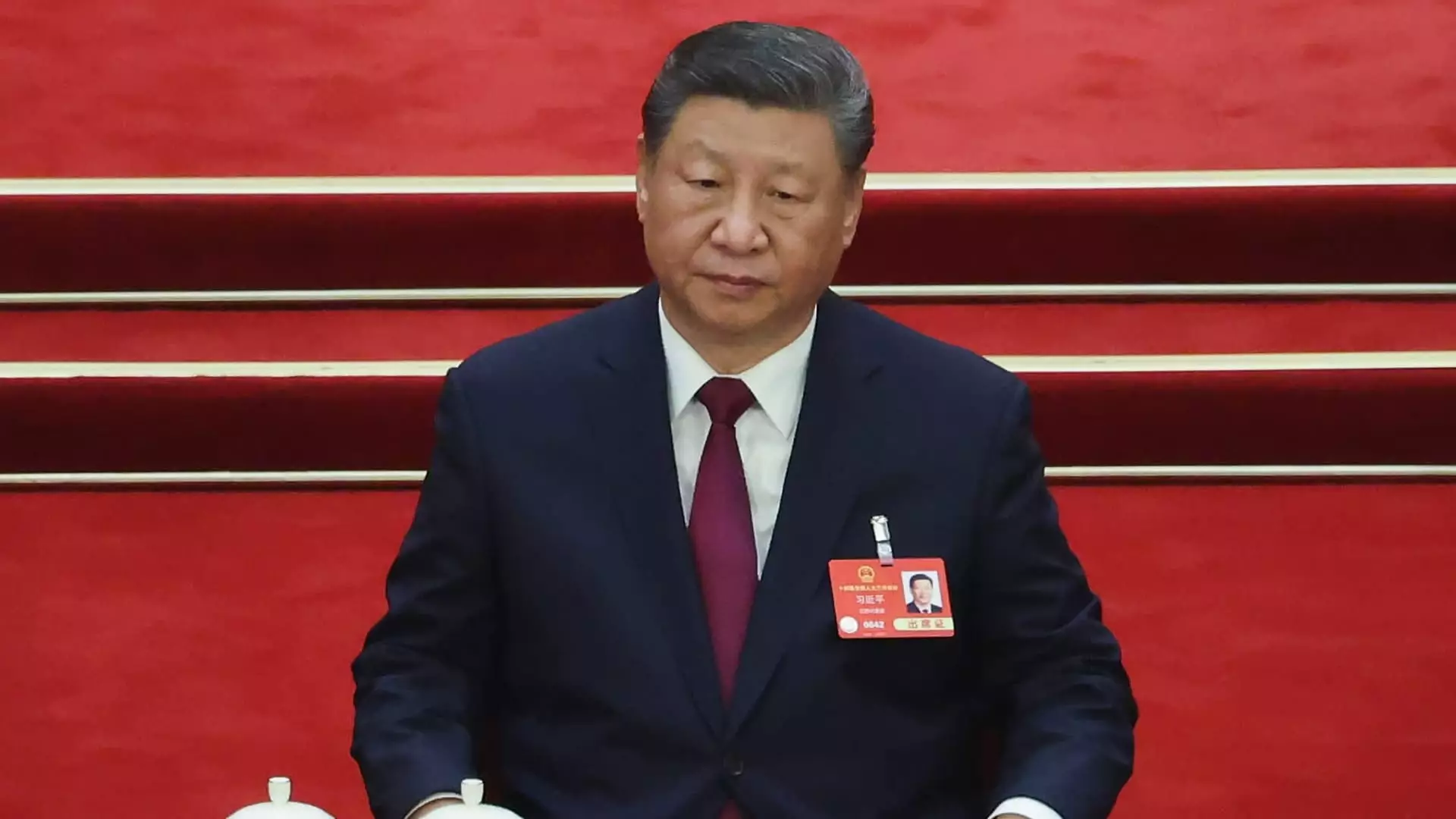The ongoing trade war between the United States and China is reaching alarming heights, as China retaliates against President Donald Trump’s aggressive tariff policies. By increasing tariffs on U.S. imports to a staggering 84%, Beijing is making a bold statement against what it perceives to be America’s bullying tactics. The implications of this escalation cannot be understated; this tit-for-tat approach threatens to dismantle trade relations between the world’s two leading economies, leading to dire consequences for global markets and economies.
The announcement from China’s Office of the Tariff Commission signifies not only a reaction to Trump’s tariffs, which have climbed to more than 100%, but also an unwillingness to enter into constructive dialogue. Rather than pursuing negotiation and compromise, China has adopted a hard-line stance, a decision that speaks volumes about the increasing polarization characterizing international trade relations. This battle of tariffs has far exceeded simple policy disputes; it has evolved into a perilous contest of economic resilience and national pride.
Economic Dangers Lurking Ahead
The consequences of this tariff war could unleash severe economic repercussions, both domestically for the U.S. and globally. A striking statistic highlights this threat: in 2024, the U.S. exported goods worth $143.5 billion to China while simultaneously importing a staggering $438.9 billion from the country. Such an imbalance speaks to the deep-rooted issues within the trading game. U.S. Treasury Secretary Scott Bessent pointedly remarked that China is, in fact, the “worst offenders in the international trading system.” Those who dismiss the serious nature of this debate underestimate how a prolonged trade conflict could fuel inflation and stifle economic growth.
Investors are already feeling the pinch, with the S&P 500 plummeting nearly 20% from its previous peak, a sign that market confidence is wavering. The fear that slower economic growth and diminished corporate profits are on the horizon has investors on edge. Global markets, such as South Korea’s Kospi Index and the indices in Shanghai and Hong Kong, are also showing signs of distress, aligning with the notion that the ripple effects of this trade war extend far beyond America’s shores.
Leadership and Responsibility: A Missed Opportunity
An alarming theme has emerged from this escalation—leadership that prioritizes nationalistic fervor over diplomacy. The Trump administration’s approach, characterized by aggressive policymaking and threats of further tariffs, represents a refusal to engage in constructive dialogue with a major trading partner. While the Trump team warned other countries against retaliatory measures, China acted swiftly to raise its own tariffs, leaving little room for discussion. This failure to negotiate doesn’t just illustrate a breakdown of communication; it raises questions about the ethical obligations of leadership in establishing trade partnerships based on mutual respect and cooperation.
China’s response, further compounded by a series of retaliatory measures, highlights how growing international tensions can affect political dynamics within nations as well. The resulting trade conflict has fueled nationalistic tendencies on both sides, with each government framing its position as a resolute stand against unfair practices. Ironically, the path to resolution may lie in diplomacy rather than aggression.
The Polarizing Climate of Global Trade
As global markets teeter on the brink of uncertainty, the path toward resolution must be paved with open conversation rather than obstinacy. Countries like Japan are signaling a willingness to engage in talks, contrasting sharply with China’s firmer stance. The ongoing narrative of tit-for-tat tariffs fuels perceptions that nations are becoming ever more isolated, rejecting the principles of cooperation that once guided international trade.
The crux of the matter lies in recognizing that the world is increasingly interdependent. Tariffs are a double-edged sword, and while they may serve short-term national interests, they inevitably foster a climate of distrust and animosity, complicating trade relationships. The question remains whether leaders will choose to reverse course and embrace negotiations that could stabilize economies and restore faith in global markets. As the trade war continues to escalate, the urgency for pragmatic discourse has never been more pressing—a challenging task for leaders entrenched in their defenses.


Leave a Reply